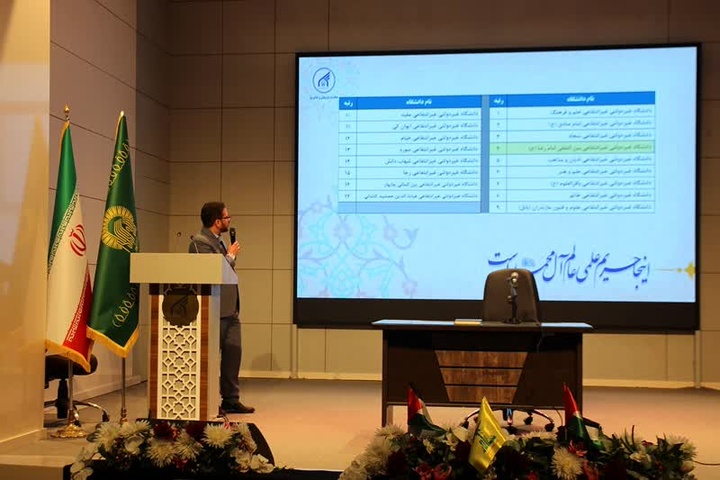“ISC has ranked 115 state and 17 non-profit universities last year. Instruction, research, innovation and technology, internationalization, economic impact and social services, and finally infrastructure and facilities were six areas based on which ISC evaluated these universities,” Sadeghi stated.
He added: “In this ranking, data about each university was retrieved in three-year courses based on three methods of data gathering by ISC and Scopus, self-declaration by the center itself, and some educational information given by the Ministry of Science, Research, and Technology”.
Referring to the fourth rank of Imam Reza International University in the country, Sadeghi talked about ranking procedures, saying: “Number of scientific productions on humanities and art in ISC and Scopus during three-year periods are criteria when research is considered an area of ranking”.
He also stated: “For evaluating scientific cooperation between university and industry, joint publications between university and industry researchers are counted in the Scopus database. Also, evaluation of the qualitative productivity of each faculty members is calculated based on the type of the journal (nature index, NaTure) quartile of the journal, and received citations”.
Imam Reza International University’s deputy for research and technology stressed: “The quality and quantity of research publications by the researchers of an institution are calculated in a certain period of time based on the ratio of Scopus and ISC articles to the average number of faculty members of that institution”.

According to Islamic World Sciences & Technology Monitoring and Citation Institute’s (ISC) ranking, Imam Reza International University ranks fourth amongst Iran’s non-profit universities, said professor Ghasem Sadeghi Bejestani, university’s deputy for research and technology in a meeting with university professors and officials in Asrar campus.
News Code 4874

Your Comment